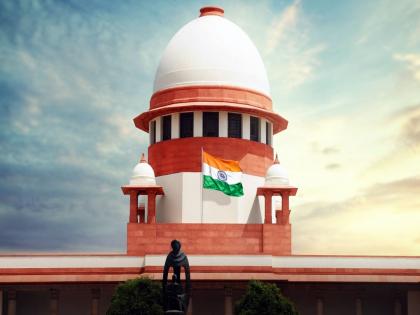Sex with the Dead Not An Offence; Supreme Court Upholds Karnataka HC Ruling that Necrophilia Not Rape
By Lokmat English Desk | Updated: February 6, 2025 14:37 IST2025-02-06T14:37:08+5:302025-02-06T14:37:41+5:30
The Indian Supreme Court recently declined to overturn a Karnataka High Court ruling that determined necrophilia does not constitute ...

Sex with the Dead Not An Offence; Supreme Court Upholds Karnataka HC Ruling that Necrophilia Not Rape
The Indian Supreme Court recently declined to overturn a Karnataka High Court ruling that determined necrophilia does not constitute rape under Section 375 of the now-defunct Indian Penal Code (IPC). The High Court had convicted the accused of murder but acquitted him of rape for having sexual intercourse with the victim's corpse. The Supreme Court, while acknowledging the Karnataka government's appeal, stated that Parliament should address the legal gap surrounding necrophilia and potentially amend the law.
The Karnataka government argued that the definition of "body" in Section 375(c) should encompass deceased individuals, as a corpse cannot give consent. They also pointed to the seventh description of rape, which covers situations where a woman is incapable of giving consent, arguing this should apply to a deceased person as well. The state's counsel cited a 1995 Supreme Court judgment emphasizing the dignity of the deceased and referenced similar legal interpretations in other countries, like the Supreme Court of Tennessee. However, the Supreme Court upheld the High Court's decision, stating that necrophilia is not currently an offense under the IPC.
This case follows a similar ruling by the Chhattisgarh High Court last year, which, while condemning necrophilia as a horrific act, concluded that it does not fall under Section 376 of the IPC or the POCSO Act, as these laws apply only to living victims. A bench of Chief Justice Ramesh Sinha and Justice Bibhu Datta Guru, made the observation that for the commission of an offence of rape, the victim should be alive. Relying on the judgment of the Karnataka High Court in Rangaraju vs State of Karnataka (2023), the court noted: “the Indian Laws do not consider Sexual Intercourse with a dead body as “rape" and a suitable parameter to convict the accused under Section 376 of the IPC. "The court’s observation came in a case where a 9-year-old girl was kidnapped, raped, and murdered by the accused, Nitin Yadav. The victim’s body was then taken to a hill, where it was buried. Before burial, the co-accused, Neelkanth @ Neelu Nagesh, committed necrophilia on the victim’s body.
The court found that it was proven that accused Yadav throttled the victim’s neck, because of which she died, and thereafter, he carried the dead body along with the undergarments and slippers of the victim to his house and hid the body inside the house. It further noted that thereafter, he met co-accused Neelkanth and informed him about the incident and also asked him for help to cause the disappearance of the body, and that is how they both took the dead body to a hill where accused Neelkanth raped the dead body of the victim, before burying the same.
The court, relying on the judgment passed by the Allahabad High Court, in the case of Surendra Koli v. State of Uttar Pradesh and others, popularly known as the ‘Nithari Killing Case’, highlighted that Article 21 of the Constitution of India provides not only the right to life with dignity but also right to die in a dignified manner. The court noted: “The depredations committed by the accused upon dead bodies of his victims cannot be turned a blind eye. The Court laid down principles of bodily integrity, consent, and dignity and also observed that in the case of rape upon a dead body, all three of these principles are violated. Even though Indian criminal laws do not recognise ‘necrophilia’ as a crime in itself, at the same time the human rights of a dead person cannot be discounted."
The court further stated: “raping a dead body is one of the most horrendous crimes one can think of but the fact of the matter is that as on date, the said accused cannot be convicted for the offence punishable under Sections 363, 376 (3) of the IPC, Section 6 of the POCSO Act, 2012 and Section 3(2)(v) of the Act of 1989 as the offence of rape was committed with a dead body and for convicting an offence under the aforementioned Sections, the victim should be alive."In light of these findings, the court dismissed the appeal (against the acquittal of Neelkanth @ Neelu Nagesh) filed by the mother of the minor girl. However, Neelkanth was convicted under Section 201 IPC for causing the disappearance of evidence. The court also upheld the conviction of Nitin Yadav, who was convicted by the trial Court under Sections 376(3), 363, 302, 201 IPC and 3(2)(v) of the SC and ST (Prevention of Atrocities) Act, 1989.